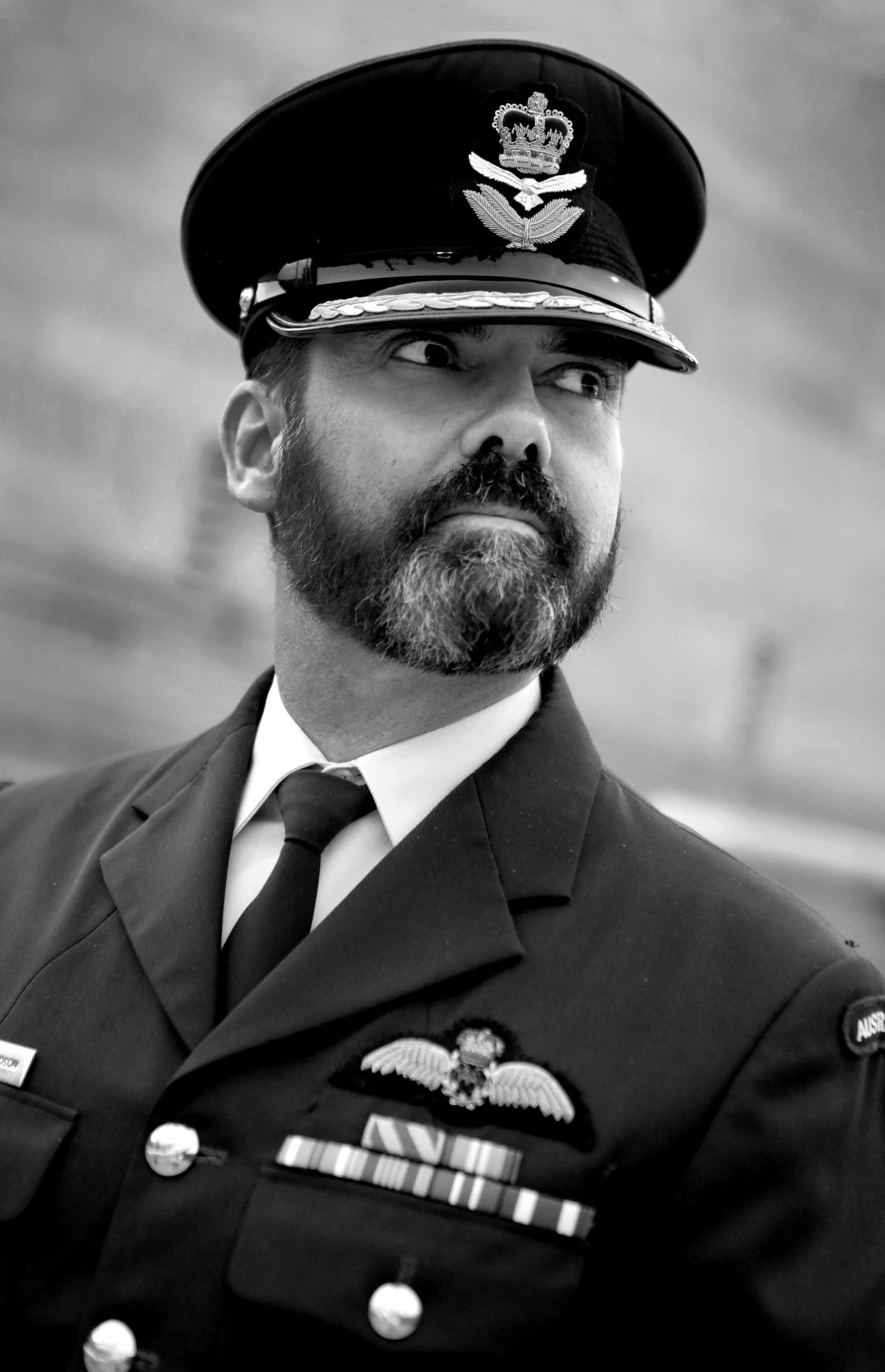John Davidson CSC
Biripi (ancestors)
Group Captain
Pilot
Royal Australian Air Force
Medals and Awards
Conspicuous Service Cross
Australian Active Service Medal with clasps East Timor and ICAT
Afghanistan Medal
Australian Operational Service Medal – Greater Middle East Operation
Defence Long Service Medal
NATO Non-Article 5 Medal with clasp ISAF
Australia Defence Medal
Operational Service Badge
Australian Defence Force Commendation
Department of Defence Group Commendation
Joint Secretary and CDF Group Commendation
Level 3 Group Commendation
Pathfinder Award
I was raised in country Queensland before joining the Royal Australian Air Force at 17 through a scholarship to the Australian Defence Force Academy. As a pilot and an officer, I have seen service in East Timor, the Pacific, Afghanistan, Iraq and the broader Middle East. I have visited 26 countries, held three commands, and undertaken two overseas postings. The RAAF has provided me with an excellent education including a Master of Business (UNSW), Master of Arts in Defence Studies (Kings College London), Graduate Diploma of Defence Studies (UNSW) and a Bachelor of Arts in Economics and Management (UNSW). My RAAF service also led to the creation of our joyous little family of three, as I met my wife when we were both posted to Amberley.
I was not raised as Aboriginal. I only discovered my indigenous heritage late in life. Since then, our family has been on a journey to understand our history and what it means. This journey, at times, has led to tears.
In 1826, at Blackman’s Point near Port Macquarie, a large group of Biripi men, women and children were massacred. A report from the time stated: “The soldiers surrounded the aborigines, and shot a great many of them; they also captured a lot of women, used them for an immoral purpose, and then shot them. The offending soldiers were sent to Sydney for trial, but managed to escape punishment.”
A young girl was orphaned in this massacre. She is my oldest known ancestor.
We don’t know her real name. She was given a European name when she was taken in by a local white landholder to work as a servant. We can be grateful that he was humane by the standards of the time, but in joining his household she was separated from her people, her land, and her link to 60,000 years of heritage, culture and wisdom.
A dark veil sits across my family line at that moment of massacre. I can sense the people on the other side of that veil, but I can never know them. I feel that loss, that violent severing, that heinous theft reaching forward through the intervening century. And then I think of all the Indigenous people who have suffered incomparably greater loss and indignity. I cannot ever understand that pain, I can only admire their strength and offer them my empathy – I am sorry.
I proudly acknowledge my Aboriginal ancestors, but I am uncomfortable calling myself Aboriginal – I do not believe I have earned that right. I hope that one day, when I have listened and learned enough, that will change. In the meantime, I am grateful to all the kind and knowing people who allow me to listen.
